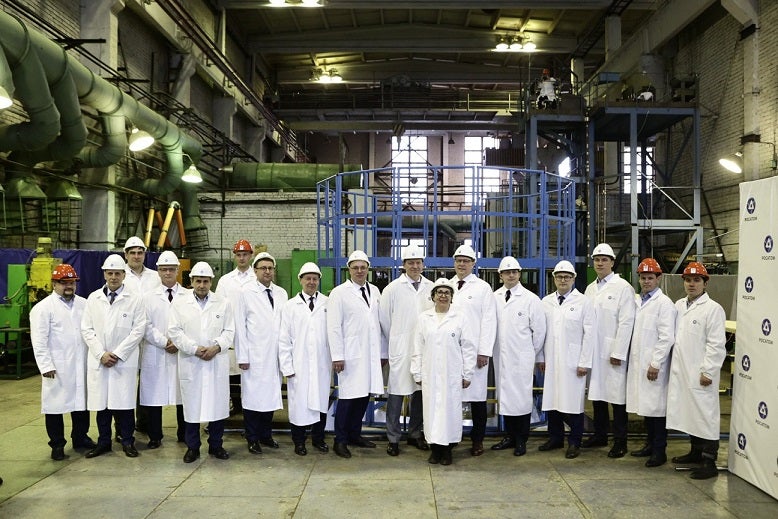
RIAR JSC (an enterprise of ROSATOM’s Science Division) held a ceremony of completing the test assembly of the first research reactor for the Center for Nuclear Technology Research and Development (CNTRD) in Bolivia.
The event has been attended by representatives of Rosatom and María Luisa Ramos Urzagaste, Ambassador of the Plurinational State of Bolivia to the Russian Federation. Jerges Mercado Suarez, President of the Chamber of Deputies of the Plurinational Legislative Assembly of Bolivia, took part in the ceremony via videoconference.
“In the very near future, the reactor will leave for Bolivia, and this year we will start its installation at the site of the Center. More recently, the cyclotron complex has started operation and has significantly expanded the capacity of the Bolivian healthcare, providing it with state-of-the-art radiopharmaceuticals. We are happy to see that the project is already benefiting Bolivians, and we will keep it running actively. It is supposed to be completed in full in 2025,” said Kirill Komarov, First Deputy Director General and Director of Development and International Business Unit, ROSATOM.
The reactor plant developed by specialists of RIAR JSC is a 200 kW research pool-type water-cooled water-moderated reactor with a 50-year lifetime. During the test, the entire assembly of the basic process equipment has been reproduced, including the installation of reflector blocks, mockups and dummy fuel assemblies, control and protection rods, and tubes of experimental channels to ensure quality control of the finished components. The work has been performed together with specialists from OKBM Afrikantov JSC, GSPI JSC, and Diakont JSC.
“The successful implementation of this project has once again demonstrated the exceptional expertise of the institute. We can boast a large-scale project for the development of an upgraded core of an SM-3 high-flux research reactor implemented in 2020, a technology for the manufacture and replacement of internals. This time we have used the existing experience and unique knowledge in the development and operation of research reactors. This project, which is so important for the domestic and Bolivian nuclear science and technology, involved specialists from several divisions of the institute, including employees of the reactor research complex, design and engineering department, and experimental service. No doubt that the work has been performed at a high science and technology level,” said Alexander Tuzov, Director of RIAR, during the ceremony.
The research reactor in Bolivia will produce radioisotopes for research in agriculture, ecology to determine pollution levels, and for hydrogeology to study groundwater and surface water. Its capabilities will also secure an environment for training students in nuclear professions. Bolivian specialists will use the research reactor to study the chemical composition of various samples by neutron-activation analysis which is in demand in various fields, from geology and ecology to art and forensics. This method helps scientists determine deposits of natural minerals, the origin and age of biological samples and artifacts, develop programs for the efficient use of natural resources and continuous monitoring of the environment.






